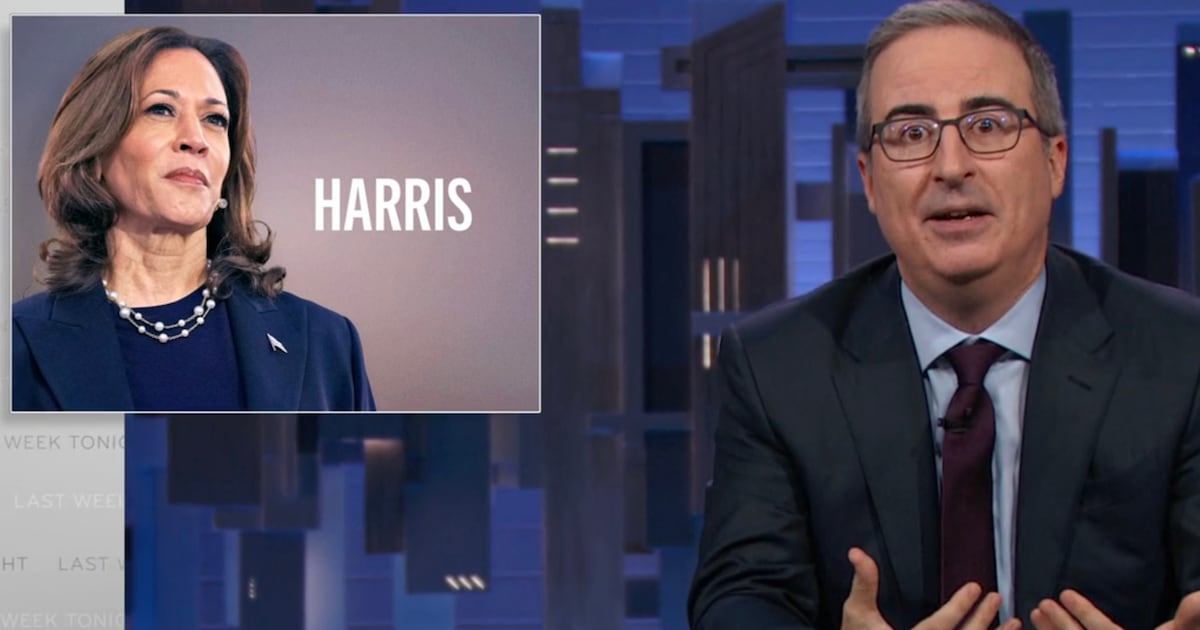At first blush, the biggest outstanding dispute of the 2020 election reads all too familiar: An Iowa congressional candidate—certified by the state as the loser in her election by just six votes—is continuing her challenge four months after Election Day with a battle cry to “count every legal vote.”
But the candidate in question, Rita Hart, is not a believer in a made-up voter fraud conspiracy. She is a dyed-in-the-wool Democrat who claims that 22 voters had their ballots wrongfully tossed and has persisted with a challenge—even as her party grows more uneasy about it. The role reversal isn’t limited to Democrats: Republicans are now hammering Hart for refusing to accept the results and move on despite constantly enabling President Trump’s boundless appetite for doing the same.
The contest in Iowa’s 2nd District, then, has become a funhouse mirror for 2020’s poisonous election politics. And it could produce an explosive final act to a seemingly never-ending election: Hart has appealed to the Democratic-run U.S. House of Representatives, where she’s found a receptive audience.
ADVERTISEMENT
Under the Constitution and specific laws that give it jurisdiction, Congress has the final say on the election of its own members. Last week, the House Administration Committee voted on a party-line basis to allow Hart’s challenge to proceed. The chair, Rep. Zoe Lofgren (D-CA), stated, “the American people deserve to know who actually won this election.”
Next, the committee could order Iowa officials to do a recount and tally the votes they threw out; after that, if Hart pulls ahead, it could all culminate in a vote on the House floor to seat her and unseat the Republican, Rep. Mariannette Miller-Meeks, who was provisionally sworn into office in January.
The last time that happened was 1985, when Democrats challenged a Republican’s 34-vote win in Indiana’s 8th District. When the House then voted to seat the Democratic candidate, Republicans stormed out of the chamber in fury. The blowback was intense: Princeton historian Julian Zelizer, writing about the episode now known as the “Bloody Eighth” in 2018, said the battle arguably led to the GOP takeover of the House in 1994.
But that was a kinder, gentler time. Partisans on both sides of the divide allow that if such a vote were to happen today—months removed from a now-infamous vote to decertify the presidential election results in Congress—it would light a political powderkeg.
Capitol Hill Republicans have stewed as Democrats continue to ostracize them for their Jan. 6 votes to object to Joe Biden’s win. Relishing the perceived hypocrisy, the GOP is eager to turn the Iowa dispute into a political cudgel: Miller-Meeks, along with the House GOP leader, Rep. Kevin McCarthy (R-CA), have hit the Fox News circuit hard. Some on the right have even trollishly called the situation Democrats’ own “big lie.”
“We look forward,” said a Monday statement from the National Republican Congressional Committee, “to seeing every vulnerable Democrat go on the record defending this insane effort to overturn a certified election.”
Chris Hayden, a spokesperson for the Democratic Congressional Campaign Committee, responded that, “every Iowan deserves to know that his or her vote was accurately counted and the House Committee on Administration is moving forward with the correct process to ensure that is the case.”
But grafting the trappings of the 2020 presidential election fracas onto the situation in Iowa’s 2nd District doesn’t work perfectly. Democrats are not claiming fraud or conspiracy, as Trump baselessly did. They are pointing to real evidence that Iowa officials erred and didn’t count all the votes, and that such error may make the difference between victory and defeat in such a close race.
Hanging in the balance is not just who represents this district. Democrats currently hold a three-vote majority in the House—giving them virtually no room for error as they attempt to pass their agenda. But the price of picking up another seat through this bruising process may be too high to justify.
Many Democrats recoil at the thought of taking a vote to unseat a sitting member—especially those lawmakers representing tough districts, said a Democratic operative who works on House races. And virtually none of them have publicly banged the drum that Hart was robbed and that Congress should remedy it.
Other Democrats say it’s worth fighting out. “I don't disagree that’s a tough vote that people have to take,” said a Democratic strategist, speaking anonymously to describe dynamics candidly. “I think it is difficult for Republicans to make an argument here, after what happened on Jan. 6—if that is the conversation they wanna drive, it’s a dubious one… The real question Republicans need to answer is, do you not want these 22 people’s votes to be counted, and why?”
Zelizer, who rejects any comparison between the GOP’s invalidation of the 2020 election and Democrats’ push on Iowa’s 2nd, nevertheless said that “the optics are challenging and come at a hard moment for the party, given that they have had to spend so much time pushing back against false claims of fraud.”
“Today, we are in about as polarized a moment as we can remember,” Zelizer said in an email. “Given that, yes, Democrats will tread more carefully—even more so after the 2020 election.”
Publicly, Pelosi has been careful. Asked by ABC’s George Stephanopoulos about the Hart challenge on Sunday, Pelosi noted the vote difference was just six votes. “Our candidate Rita Hart, the Democratic candidate, asked for this process to begin,” she said.
David de la Fuente, an election analyst at the Democratic think tank Third Way, said even in normal times, “this would be an extremely fraught issue. Some of it is because of what Trump has wrought on our democracy. But this would be a case where whichever side loses is going to have some legitimate reasons to be upset.”
The House typically sees two challenges under the Federal Contested Elections Act every year. There is another one this cycle: Republican Jim Oberweis, who lost to Rep. Lauren Underwood (D-IL) by 4,000 votes, has appealed to the House.
But the Iowa 2nd race, the closest congressional race in a century, is especially unusual. Longtime Democratic Rep. David Loebsack’s retirement opened up the seat in 2020, and Miller-Meeks and Hart, both Iowa state legislators, squared off in a hard-fought and nationally watched campaign.
When the dust began to clear after Nov. 3, Miller-Meeks led by 47 votes—or 0.01 percent of all votes cast. Hart called for a recount across the district’s 24 counties, and after a process that befuddled Democrats and some observers, Miller-Meeks emerged with a six-vote lead, certified by the state’s bipartisan Board of Canvass on Nov. 30.
Under Iowa’s rules, Hart had a Dec. 8 deadline to fully vet those recount results and take the challenge to court. Her allies say meeting that standard would have been impossible, so she decided to take the challenge directly to Congress—even as the Des Moines Register, the state’s most influential paper, urged her to concede. “It's true that this is a legal path and that there are legitimate reasons to question the fairness of aspects of Iowa's recount process,” they wrote. “But even if Hart prevails, a decision that's ultimately made by a Democratic-controlled House will forever taint her service in Congress.”
In a Dec. 22 filing with the House, Hart’s campaign—represented by Democratic election law guru Marc Elias—stressed that under the Constitution and relevant law, the House is the proper venue for her challenge. “Although it is admittedly tempting to close the curtain on the 2020 election cycle, prematurely ending this contest would disenfranchise Iowa voters and award the congressional seat to the candidate who received fewer lawful votes,” her filing read.
In the filing, Hart’s team also detailed the cases of the 22 voters who did not have their ballots counted. Eighteen of them, they claim, were Hart voters, while three were Miller-Meeks voters. They did not personally examine those ballots, but obtained the voters’ decisions through sworn affidavits.
Their ballots were invalidated due to combinations of voter and administrative error that are prevalent in elections but almost never affect the outcome save for rare instances like this. One voter, for instance, had her ballot tossed because she had to tape it closed after the envelope arrived to her already sealed. Even though Iowa officials said she could tape it, her ballot was rejected anyway.
If all these ballots were tallied as part of a Congress-mandated recount, and Hart’s filing is accurate, she would have a nine-vote lead. Democrats say that it’s hardly shocking she would choose to appeal to Congress. “It’d be surprising to see any candidate in that circumstance who would not exercise their rights under law to contest the election,” said a Democratic aide. “She has met a threshold for saying the election was wrongly awarded to her opponent, so we’re taking a look at it.”
Derek Muller, a University of Iowa law professor who supervised recount efforts on behalf of the Miller-Meeks campaign, summed up a point of view shared by Republicans and some observers: that Hart didn’t go through the courts because “practically, she was going to lose.” She could have gone to Congress anyway even if she lost in the courts; Republicans suspect she did not so as to have a stronger case.
Contesting every ballot in another recount would be a painstaking process, said Muller, and could backfire if other errors redound to Miller-Meeks’ benefit. “If there are so many unexamined systemic questions—Miller-Meeks is not playing that game right now,” said Muller. “She’s not saying, ‘here’s 23 missing on this side.’ If it gets into the mess of the committee trying to decide, all bets are off.”
Given the House Administration Committee’s vote last week to dismiss Miller-Meeks’ motion to table Hart’s challenge, both sides will get a chance to argue their cases and respond to questions from Lofgren, the chair. After that, lawmakers will have to decide whether they want to solicit more evidence, order a recount in Iowa’s 2nd and, potentially, put into motion a vote to unseat Miller-Meeks.
"We appreciate that the committee is taking seriously the need to ensure every vote is counted in this historically close race and look forward to replying to the Chairperson's questions in a timely manner,” said Zach Meuiner, a spokesperson for Hart. Meanwhile, asked what Miller-Meeks’ message is to constituents who believe their votes weren’t counted, spokesperson Eric Woolson said the race “was so close that a recount was done in every county, and that recount yielded the same outcome. Every vote was counted under Iowa law and recounted under Iowa law.”
Despite the already-considerable partisan rancor here—a shadow of what could come if the House moved forward—some observers stress that, unlike with the 2020 presidential contest, this is a genuine disagreement that happens to be taking place in a dangerously charged environment around elections.
“There really are no villains in this,” said Third Way’s de la Fuente. “If the tables were turned and we’re dealing with a Republican that was six votes behind in an election where Paul Ryan was still speaker, I think Democrats would be telling you the exact same arguments Republicans are telling you,” he continued. “And they'd be just as valid.”






